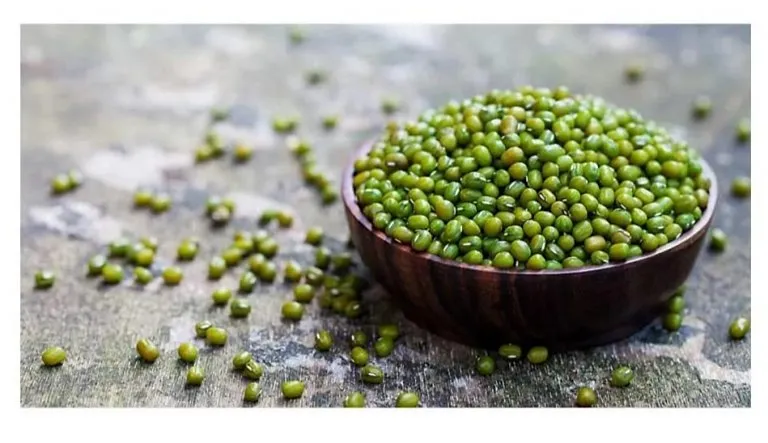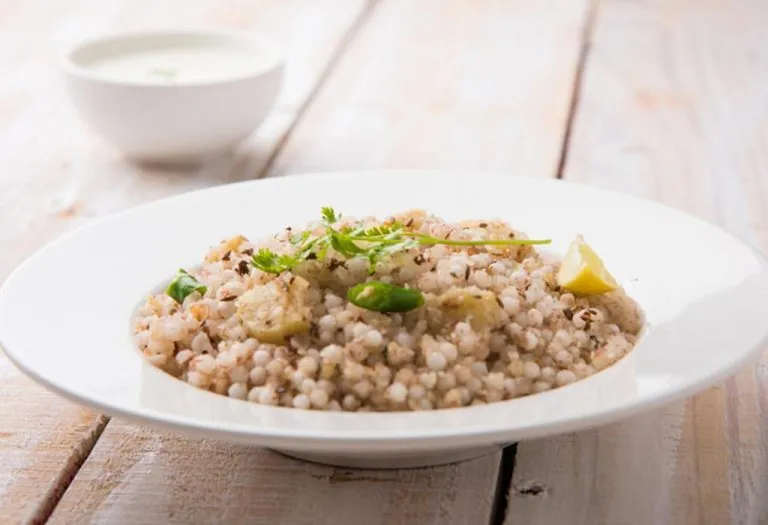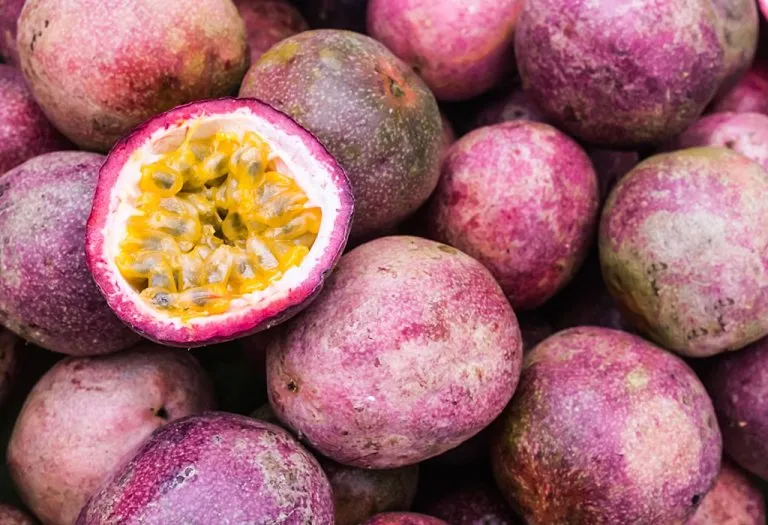Moong Dal During Pregnancy – Benefits and Tips
- Is It Good to Eat Moong Dal During Pregnancy?
- Nutritional Profile of Moong Dal
- Top Benefits of Moong Dal in Pregnancy
- Are There Any Side Effects of Consuming Moong Dal in Pregnancy?
- Tips to Consider While Consuming Moong Dal While Pregnant
- FAQs
The internet is brimmed with the health benefits of moong dal during pregnancy, but is it validated? If you are not aware of this type of legume, let us tell you that moong dal, mung beans, and green gram beans are all the same. Yellow moong dal is made from moong beans that are hulled and split. This results in some lentil-like and delicate legumes. It is known to promote the health of pregnant women, helping with the development and growth of the foetus. Is moong dal during pregnancy successful in ensuring a healthy and safe pregnancy? Let’s find out!
Is It Good to Eat Moong Dal During Pregnancy?
Eating moong dal during pregnancy can be highly beneficial. Moong dal, also known as mung beans, is a rich source of essential nutrients such as protein, fibre, vitamins, and minerals, all of which are crucial for the health of the mother and the developing baby. However, it is advisable to consume moong dal in moderation and ensure it is well-cooked to avoid any potential foodborne illnesses.
Nutritional Profile of Moong Dal
Here’s a closer look at the nutritional profile per 100 g of moong dal, a nutrient-dense legume with a balanced nutritional composition that makes it an excellent choice for a healthy diet (1).
| Nutrient |
Value (per 100 g)
|
| Calories | 347 kcal |
| Total Fat | 1.15 g |
| Saturated Fat | 0.348 g |
| Polyunsaturated Fat | 0.384 g |
| Monounsaturated Fat | 0.161 g |
| Cholesterol | 0 mg |
| Sodium | 15 mg |
| Total Carbohydrate | 62.62 g |
| Dietary Fibre | 16.3 g |
| Sugars | 6.6 g |
| Protein | 23.86 g |
| Calcium | 132 mg |
| Iron | 6.74 mg |
| Potassium | 1246 mg |
| Vitamin A | 6 mcg |
| Vitamin C | 4.8 mg |
Top Benefits of Moong Dal in Pregnancy
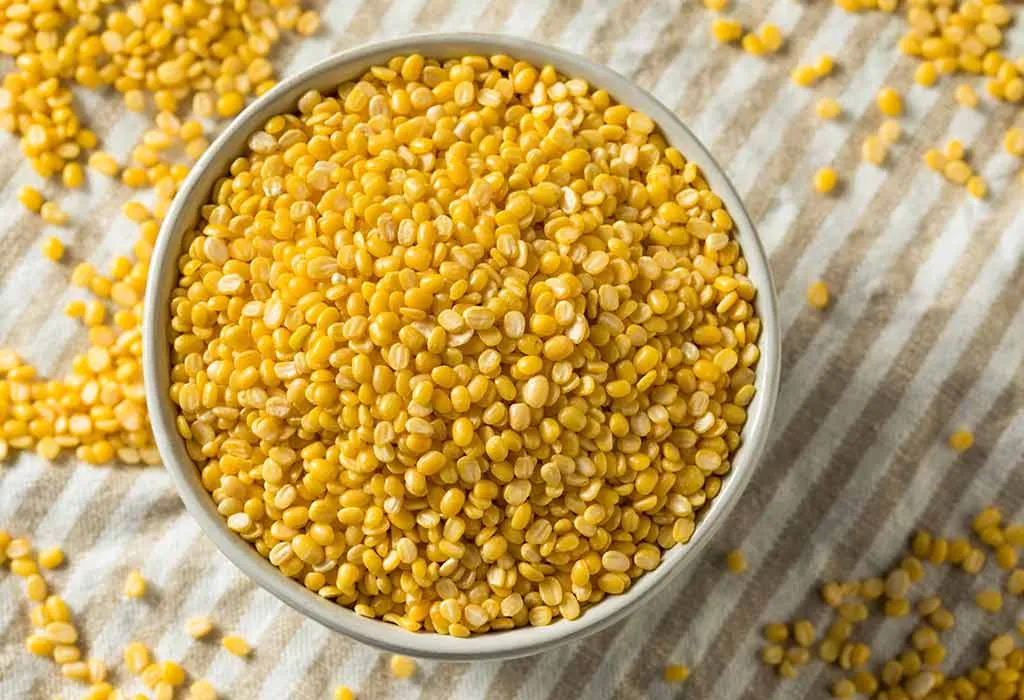
Here are some amazing and unheard-of health benefits of moong dal or mung beans during pregnancy and in general.
1. The Protein Is Important for Mom’s and Baby’s Tissue Repair and Muscle Building
Moong dal is a perfect addition to the diet of pregnant women, packed with carbohydrates and proteins that provide the necessary energy and nutrition to power through the day. Protein, a vital nutrient, plays a crucial role in cell renewal and muscle building. While meat is a common protein source, legumes and beans like moong dal are equally rich in this essential nutrient (4).
2. The Fibre Helps in Avoiding Constipation and Other Pregnancy Side Effects
The inclusion of moong dal in the diet of pregnant women is a wise choice, thanks to its high fibre content. Fibre not only helps to prevent gastric ulcers and constipation but also alleviates common pregnancy discomforts like bloating, nausea, cramping, and morning sickness. For an even more effective digestive health boost, pair moong dal with other fibre-rich foods like green vegetables and fruits.
3. Iron Is Important for Haemoglobin Production
Another reason why moong dal is good for pregnancy is because of the iron it provides to the body. Iron is an essential mineral that helps the body maintain and regulate its functions. Yellow moong dal is good at promoting haemoglobin and red blood cell production. Therefore, you can fulfil your body’s iron needs by consuming moong dal with other iron-rich foods like seafood. If you do not have enough iron, it might lead to a few health problems like chronic fatigue and anaemia, which are harmful to the baby.
4. Folate Prevents Birth Defects Like Spina Bifida in the Baby
Consuming mung beans during pregnancy is excellent due to the presence of folate. The folate in the moong dal is beneficial for promoting the optimal development and growth of the baby. Mung beans are good for the brain cells of the baby. The folate also prevents congenital disabilities like spina bifida in the baby (6). The baby’s memory cells grow very well, and it increases intelligence. When there is a lack of folate in pregnant women, there is a higher risk of congenital disabilities.
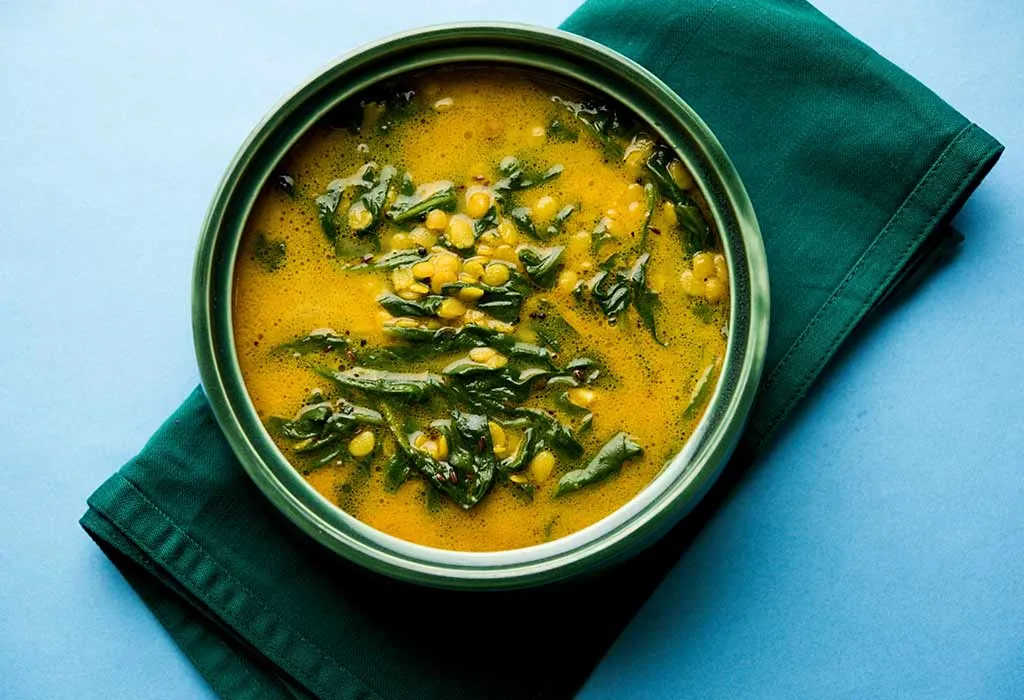
5. The Antioxidants Fight Free-Radical Damage
The antioxidants in the moong dal are good for protecting the body during pregnancy. Research has shown that antioxidants prevent miscarriage in the first trimester by protecting cells from oxidative damage. They also protect the body against free-radical damage. They are also good at avoiding severe diseases like cancer (2).
6. Good for Heart Health
The potassium, magnesium, and fibre in moong dal reduce the risk of diseases related to the heart. A dangerous side-effect of pregnancy is preeclampsia, which is characterised by high blood pressure. Research shows that the nutrients in moong dal can lower blood pressure. Research also shows that mung beans can reduce the level of LDL cholesterol in the blood and protect these particles from connecting with unstable free radicals. Moreover, the fibre in the moong dal absorbs fat so that the blood vessels work normally. Heart diseases such as stroke can be prevented this way (5).
7. Overall Health Treatment
Pregnant women should care for their overall health as it affects the foetus. This is why mung beans can provide the body with the right amount of nutrients for maintaining the health of the pregnant mother. Overall health is promoted because of the high content of minerals, vitamins, folic acid, protein, and fibre in the moong dal. Also, pregnant women can drink mung bean extract to keep their bodies fit (3).
8. Nutrient Source for the Baby
There are so many moong dal benefits for fetuses, and one of them is preventing the baby’s disability. Nutrients are very important for intelligence, cell growth, and the baby’s overall health. Mung beans are a rich source of vitamins like omega 3 and omega 6, which are good for the production of cells in the brain. These nutrients work great at promoting the baby’s intelligence when it is born.
9. Vitamins
Mung beans contain vitamin B1 and vitamin B2, which are beneficial for the absorption of protein in the organs. They also contain vitamin B6, which helps fight free radicals, and vitamin A, which helps improve the eyes’ health. Mung beans also contain essential minerals, carotenoids, and low calories, which are good for the baby’s growth and the health of pregnant women.
10. Potassium
Moong dal is a good source of potassium. Potassium promotes blood circulation, maintains the health of the heart, and controls the level of the body’s blood pressure.
Are There Any Side Effects of Consuming Moong Dal in Pregnancy?
Consuming green moong dal during pregnancy is generally considered safe and nutritious. However, like with any food, there can be some side effects or considerations to keep in mind:
- Digestive Issues: Moong dal can cause gas and bloating in some people, especially if they have a sensitive digestive system. Pregnant women may already experience digestive discomfort, and consuming large amounts of moong dal could potentially exacerbate this.
- Allergic Reactions: While rare, some individuals may be allergic to legumes, including moong dal. Symptoms can include itching, swelling, and difficulty breathing. If you have a known allergy to legumes, it is best to avoid moong dal.
- Foodborne Illnesses: It is essential to ensure that the moong dal is properly cooked and prepared. Raw or undercooked moong dal can harbour bacteria or other pathogens that could pose a risk to both the mother and the baby.
Tips to Consider While Consuming Moong Dal While Pregnant
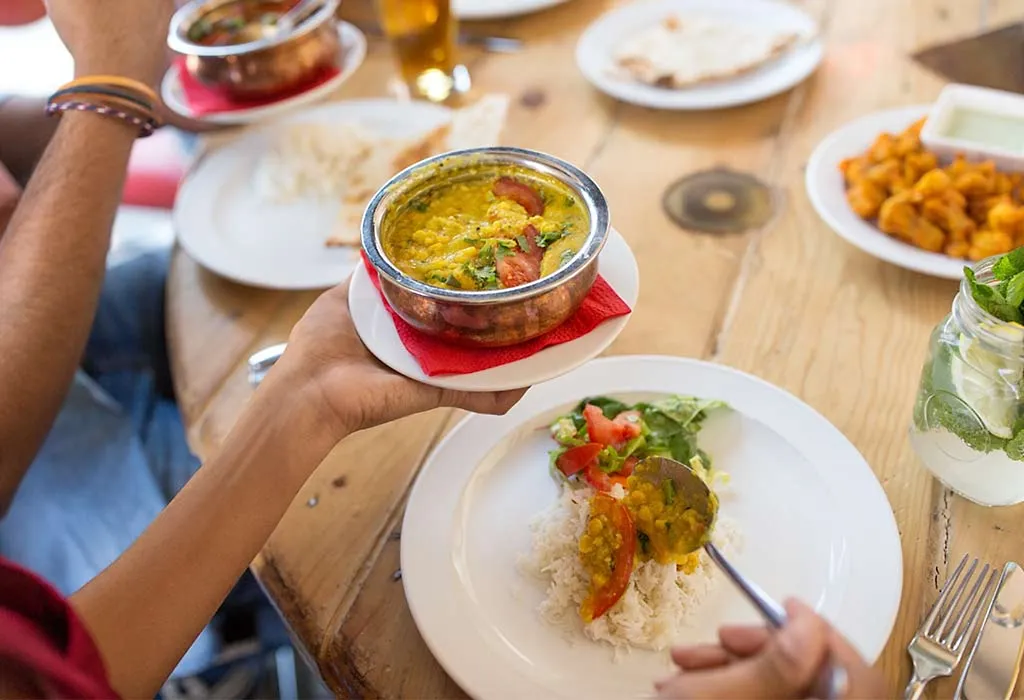
- Grocery stores will have pre-packaged moong dal or even stored in bulk containers. Store it for 3-4 months in an airtight container at room temperature.
- Strictly avoid moong dal sprouts during pregnancy, as they may contain the bacteria salmonellosis, which, in the worst cases, may trigger miscarriage.
- Once the moong dal is ready, you can get creative in the kitchen. Try cooking it with some onion, tomatoes, ginger-garlic paste, green chillies, and cumin seeds. This versatile ingredient can be used to make stews, purees, and even delicious soups.
- You can combine moong dal with many other beans to make ice creams, ice pops, cakes, and other such desserts.
- You can consume it with other nutritious foods like eggs, yoghurt, cheese, and peanut butter.
- Ensure you also eat calcium-rich, protein-rich, iron-rich, fibre-rich foods, whole grains, and fruits like figs, bananas, apples, pears, and vegetables.
FAQs
1. How much moong dal is safe to consume during pregnancy?
Moderation is essential. A serving size of 1/2 to 1 cup of cooked moong dal a few times a week can provide significant nutritional benefits without overloading the digestive system. Always balance it with other protein sources and various fruits and vegetables.
2. Is moong dal suitable for women with gestational diabetes?
Moong dal has a low glycemic index, which releases sugar slowly into the bloodstream, which helps manage blood sugar levels. It can be a good source of protein and fibre for women with gestational diabetes, but portion control and balanced meals are essential. Consult with a healthcare provider for personalised dietary guidance.
3. Can moong dal help with pregnancy-related fatigue?
Moong dal is an excellent source of iron and protein, two key nutrients in combating pregnancy-related fatigue. Iron is crucial in preventing anaemia, which often leads to tiredness, while protein provides sustained energy. You can effectively maintain your energy levels by consuming moong dal in pregnancy.
Moong dal benefits pregnant women because it has many minerals and vitamins. There are many benefits of green gram during pregnancy, and after knowing how beneficial it is, do not hesitate to eat moong dal when you are pregnant. If you are doubtful about the consumption, do not hesitate to consult with your doctor. They will be able to tailor a diet for you based on your needs.
References/Resources:
1. Mung beans, mature seeds, raw; U.S. DEPARTMENT OF AGRICULTURE; https://fdc.nal.usda.gov/fdc-app.html#/food-details/174256/nutrients
2. Hou. D, Yousaf. L, Xue. Y, et al.; Mung Bean (Vigna radiata L.): Bioactive Polyphenols, Polysaccharides, Peptides, and Health Benefits; PubMed Central; https://www.ncbi.nlm.nih.gov/pmc/articles/PMC6627095/
3. Shahrajabian. M. H, Sun. W, Cheng. Q; A short review of health benefits and nutritional values of mung bean in sustainable agriculture; ResearchGate; https://www.researchgate.net/publication/338233304_A_short_review_of_health_benefits_and_nutritional_values_of_mung_bean_in_sustainable_agriculture
4. Yi-Shen. Z, Shuai. S, FitzGerald. R; Mung bean proteins and peptides: nutritional, functional and bioactive properties; PubMed Central; https://www.ncbi.nlm.nih.gov/pmc/articles/PMC5846210/
5. Kumar. G, Baojun. X; A critical review on phytochemical profile and health promoting effects of mung bean (Vigna radiata); Food Science and Human Wellness; https://www.sciencedirect.com/science/article/pii/S2213453017301453; March 2018
6. Spina bifida; NHS; https://www.nhs.uk/conditions/spina-bifida/#
Also Read:
Can You Eat Chickpeas in Pregnancy?
Is It Safe to Consume Urad Dal when Pregnant?
Is It Safe to Eat Panchamrut during Pregnancy?
Was This Article Helpful?
Parenting is a huge responsibility, for you as a caregiver, but also for us as a parenting content platform. We understand that and take our responsibility of creating credible content seriously. FirstCry Parenting articles are written and published only after extensive research using factually sound references to deliver quality content that is accurate, validated by experts, and completely reliable. To understand how we go about creating content that is credible, read our editorial policy here.






